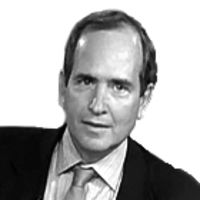WordPress.com, a blog-hosting service used by nearly 60 million blogs, is a window onto the new world of work.
It essentially has no office, notes Tim Ferriss, a tech investor, author of the bestselling The 4-Hour Workweek, and the seventh “most powerful” person on Newsweek’s Digital 100 Power Index last year. It suggests a world in which the in-person meeting and phone calls with clients may be unnecessary.

But it’s also a work world in which there will be distinctly less employer and employee loyalty. Nearly 70 percent of respondents in a major new workforce study believe that workers will be less loyal to their companies in the future—and nearly the same amount believe that lack of loyalty will be returned by their bosses.
That world, and its appeal and potential downsides, was a subject that nearly packed the 850-seat main theater at Chicago’s Goodman Theatre last week during a weeklong intellectual feast known as Chicago Ideas Week. Several hundred of society’s best and brightest, from former secretary of state Colin Powell to start-up billionaires, Rwandan refugees, Oscar winners, scientists, researchers and performance artists, spoke on and debated an eclectic array of topics. The only really prominent no-show was cyclist Lance Armstrong. He cancelled a speech meant to inspire a $400-a-listener audience shortly after a report from the United States Anti-Doping Agency portrayed him as intimately involved in a comprehensive and illegal doping program that sought to circumvent the sport’s drug-testing strictures.
At the session on work, Ferriss chronicled a world in which the hallmarks are “material beats methods,” “performance over presence,” and “selective ignorance maximizes output,” meaning that you stop wasting time on stuff that just doesn’t matter.
That theme was picked up on by Lisa Brummel, the chief people officer (back in the day, she might have been a vice president for human resources) at Microsoft. When she joined the company in 1989, its offices had no clocks. But it was still “the most controlled environment you can imagine,” she said.
Now Microsoft features big green spaces, and people playing baseball and cricket. Walls may be far less visible. But bosses must learn how to manage co-workers who aren’t physically around. She foresees a workplace in which an individual’s hologram, rather than the individual, is in a room, or on a screen, taking part in strategic discussions.
That wouldn’t surprise Jason Fried much at all since he runs a Chicago software firm, 37signals, where, from May to October, employees mostly work independently in four-day, 32-hour work weeks, and there are regular four-hour quiet periods where bosses can’t bother their underlings. No calls, emails, or text messages. They’re in the office but by themselves.
The unorthodox strategy largely reflects Fried’s view that managers and meetings are impediments. It explains why a 2010 TED Talks video of him outlining those views (“Why Work Doesn’t Happen at Work”) clearly touched a nerve and went viral. (Watch the video here).
Still, the most notable presentation came from Kelly Grier, who heads the Chicago office of Ernst & Young, the large consulting firm. That provided another sort of window into the new world of work, with a sneak peak at a new survey it compiled.
In sum, a survey of 12,000 professionals and white-collar workers in the Chicago area, conducted in late summer, found that workers do indeed expect far more flexibility in their workplace and schedules, largely driven by technology. But they also fully expect loyalty to decline.
Ernst & Young provided the Daily Beast a fuller look at its results, which also show that workers assume contract work arrangements will play an increasingly significant role. Nearly half the respondents expected contractors to actually become more important than full-time employees. Of course those voicing such a view tended to be in management, consulting, or independent business roles. And 40 percent of respondents do not believe employers “will provide ample opportunities for traditional jobs with benefits.”
If there are doubts that an older form of corporate paternalism is not long for the world, they seem dispelled at least by the respondents to the survey. Just under 70 percent believe employees will be less loyal to employers, with 64 percent believing employers will be less loyal to their workers. Even among those who said they were either “somewhat confident” or “confident” that full-time employment opportunities with benefits will be available, 69 percent concurred that employees will feel less loyalty to their organizations.
And even among proponents of much more flexible workplace arrangements, like Fried, the prospect of a much more mercenary employer-employee universe was unsettling. Fried conceded it was a notable and troubling finding.
For sure, there are scads of workers for whom the new office-less, meeting-less work environment doesn’t seem especially germane. They’re the sorts chronicled in Hidden America, Pittsburgh writer Jeanne Marie Laskas’s book on coal miners, cowboys, landfill workers, and others who work at more primal tasks.
If one of the takeaways of her own presentation is that the new workplace arrangements envisioned have scant relevance to many blue-collar laborers, a second was both surprising and reassuring: many of those workers, including ones she interviewed at the nation’s largest garbage dump in City of Industry, Calif., actually really like their jobs.






